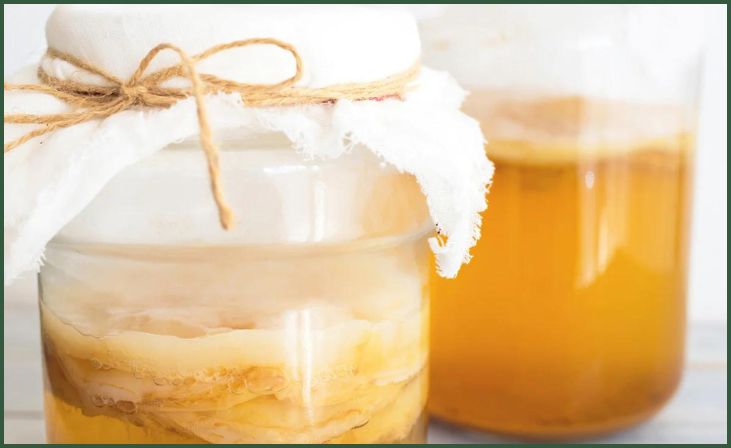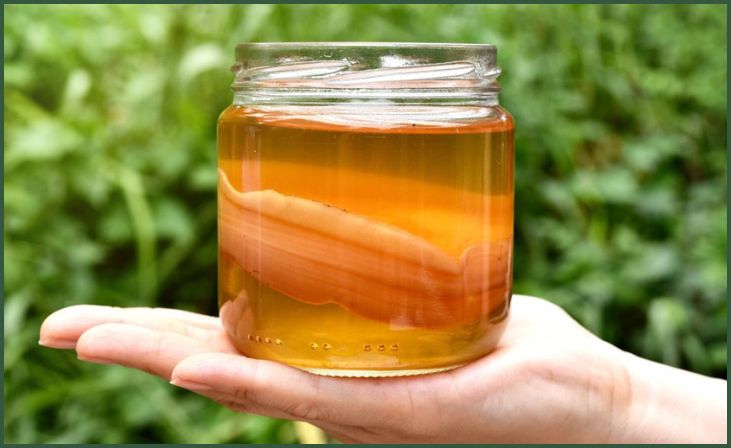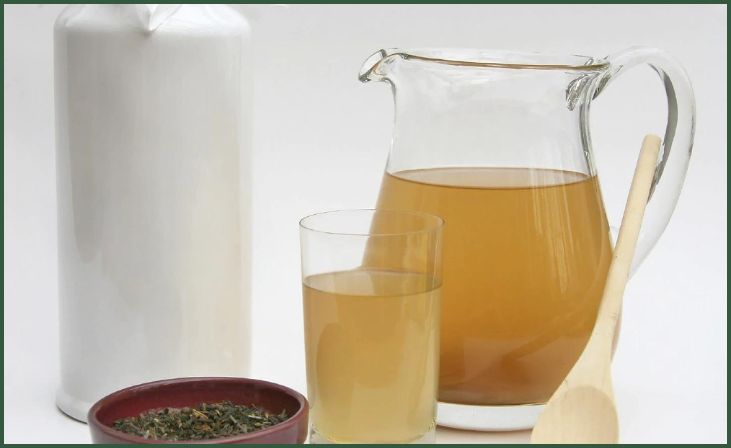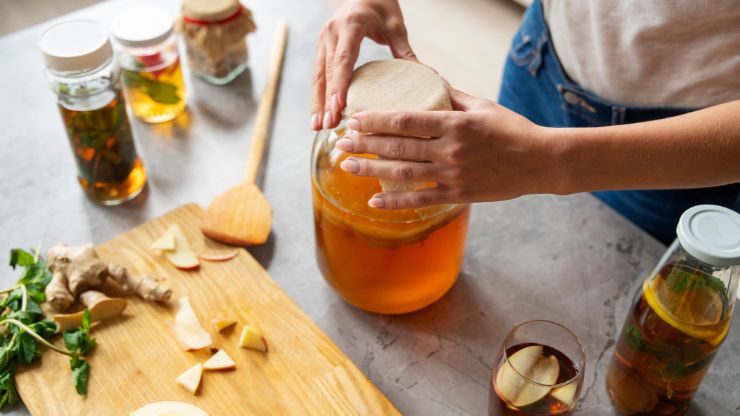Are you searching for a natural elixir that can boost your well-being? Look no further than the miraculous concoction of Probiotic Jun Tea. Packed with a myriad of health benefits, this fermented drink has gained immense popularity among health enthusiasts and experts alike. Read on to discover the ten remarkable ways Probiotic Jun Tea can transform your health and elevate your overall wellness.
Table of Contents
Toggle10 Health Benefits Of Probiotic Jun Tea
Probiotic Jun Tea, a fermented beverage made from a blend of green tea and honey, offers a myriad of health benefits that can significantly enhance your overall well-being. Here are ten compelling reasons why you should consider incorporating Probiotic Jun Tea into your daily routine:
Enhanced Digestive Health

The probiotics in Probiotic Jun Tea work symbiotically to maintain a healthy balance of gut bacteria, supporting the digestive system’s efficient breakdown of food and absorption of essential nutrients. This process can alleviate common digestive issues such as bloating, indigestion, and irregular bowel movements, promoting overall gastrointestinal wellness and comfort.
Boosted Immune Function
Regular consumption of Probiotic Jun Tea can fortify your immune system by promoting the production of antibodies and enhancing the activity of immune cells. This heightened immunity enables your body to better combat pathogens and reduces the likelihood of falling prey to common infections and seasonal illnesses, ensuring you stay healthy and active year-round.
Also Read: Traditional Herbal Root Beer
Increased Nutrient Absorption
The bioactive compounds present in Probiotic Jun Tea facilitate the efficient absorption of key nutrients such as vitamins, minerals, and antioxidants from the foods you consume. By improving nutrient absorption, this elixir optimizes your body’s utilization of essential nutrients, contributing to improved energy levels, enhanced cellular function, and overall vitality.
Detoxification and Cleansing
Probiotic Jun Tea’s natural detoxifying properties support the body’s natural detoxification processes, aiding in the elimination of toxins and harmful substances. By enhancing liver function and promoting the removal of accumulated waste, this cleansing action can contribute to improved organ function, clearer skin, and a heightened sense of overall well-being.
Stress Reduction and Mental Well-being
The probiotics and bioactive compounds found in Probiotic Jun Tea have been linked to stress reduction and improved mental well-being. Regular consumption of this tea may help regulate stress hormones, promote relaxation, and alleviate symptoms of anxiety, thereby fostering a more balanced and positive emotional state.
Regulation of Blood Sugar Levels

Probiotic Jun Tea’s unique composition of bioactive components can aid in regulating blood sugar levels by improving insulin sensitivity and glucose metabolism. This regulation is particularly beneficial for individuals managing diabetes or insulin resistance, as it can help stabilize blood sugar levels and minimize fluctuations, promoting better long-term health and wellness.
Don't just scroll, subscribe!
BuzzTrail's unique web-stories are the cure for boredom you've been waiting for.
Improved Skin Health
The combination of probiotics and antioxidants in Probiotic Jun Tea works synergistically to promote healthier, clearer skin. By reducing inflammation and combating oxidative stress, this tea can help alleviate common skin issues such as acne, eczema, and inflammation, while promoting a more radiant and youthful complexion.
Weight Management Support
Probiotic Jun Tea’s metabolism-boosting properties can aid in weight management by promoting the efficient breakdown of fats and carbohydrates. This, along with its possible appetite-regulating effects, can help control cravings, stop overeating, and support maintaining a healthy weight. This can lead to a better body makeup and a more long-lasting way to manage weight.
Enhanced Energy Levels
Regular consumption of Probiotic Jun Tea has been associated with increased energy levels and improved vitality. This boost in energy can be attributed to its ability to optimize nutrient absorption, support efficient metabolism, and enhance the body’s utilization of energy sources, ultimately leading to a sustained and consistent supply of energy throughout the day.
Potential Disease Prevention

Probiotic Jun Tea’s diverse array of beneficial compounds, including antioxidants, polyphenols, and probiotics, holds promising potential in the prevention of certain diseases. By combating oxidative stress, reducing inflammation, and promoting a healthy microbiome, this tea may help reduce the risk of various chronic diseases, including cardiovascular conditions, metabolic disorders, and certain types of cancers, making it a valuable addition to your preventive healthcare regimen.
Incorporating Probiotic Jun Tea into your lifestyle can provide a natural and effective way to support your overall health and well-being, helping you feel revitalized and energized from the inside out.
Also Read: Homemade Grape Soda
Easy Steps To Make Probiotic Jun Tea
Making Probiotic Jun Tea at home is a simple and rewarding process. Follow these easy steps to create your own batch of this healthful elixir:
Ingredients
- 3 cups of purified water
- 4 bags of green tea or 4 teaspoons of loose green tea
- 1 cup of raw honey
- 1 Jun tea SCOBY (Symbiotic Culture of Bacteria and Yeast)
- 1 cup of starter liquid from a previous batch of Jun Tea (or raw unflavored store-bought Jun Tea)
Instructions
- Boil the water: In a big pot, bring the clean water to a boil. Take it off the heat when it starts to boil quickly.
- Steep the tea: Add the green tea bags or loose green tea to the hot water and let it steep for about 5-7 minutes. Remove the tea bags or strain out the loose tea leaves.
- Add honey: Stir the raw honey into the tea while it is still warm until it is fully mixed in. Let the tea mix that has been sweetened cool down to room temperature.
- Prepare the fermentation vessel: Pour the cooled sweet tea into a clean glass jar, leaving some space at the top. Add the Jun tea SCOBY and the cup of starter liquid to the jar.
- Cover and ferment: Cover the jar with a breathable cloth or paper towel and secure it with a rubber band. Place the jar in a warm, well-ventilated area away from direct sunlight. Let it ferment for 7 to 10 days, depending on your desired taste and strength.
- Check for fermentation: After the initial fermentation period, taste the Jun Tea. If it has reached the desired level of tartness and carbonation, it is ready. If not, let it ferment for a few more days until it reaches your preferred taste.
- Bottle and store: Once you’re satisfied with the taste, carefully remove the SCOBY and store it in a cup of the finished Jun Tea for your next batch. Pour the rest of the Jun Tea into airtight bottles for storage in the refrigerator.
- Enjoy: Serve the chilled Probiotic Jun Tea as a refreshing and healthful beverage, and feel the goodness of its probiotic benefits with every sip.
Also Read: Health Benefits of Amazake
Conclusion
In a world where natural health remedies are gaining precedence, Probiotic Jun Tea stands out as a remarkable elixir that can enhance your overall well-being. With its potent blend of probiotics, antioxidants, and vital nutrients, this ancient fermented drink has proven its ability to promote digestive health, boost immunity, and provide an array of other health benefits. Incorporate Probiotic Jun Tea into your daily routine to experience the transformative power of this time-honored beverage.
FAQs
What exactly is Probiotic Jun Tea?
What exactly is Probiotic Jun Tea?
Probiotic Jun Tea is a traditional fermented beverage that combines the goodness of green tea and honey. It is created through the symbiotic fermentation of green tea, honey, and a unique culture known as a SCOBY (Symbiotic Culture of Bacteria and Yeast). This results in a potent and probiotic-rich drink that can contribute to gut health and overall well-being.
How does Probiotic Jun Tea benefit your health?
How does Probiotic Jun Tea benefit your health?
Probiotic Jun Tea offers a host of health benefits, including improved digestion, enhanced immune function, increased nutrient absorption, and detoxification. Its probiotic content aids in maintaining a healthy balance of gut bacteria, leading to improved digestive health and reduced inflammation. Additionally, its antioxidant properties may contribute to a strengthened immune system and overall vitality.

